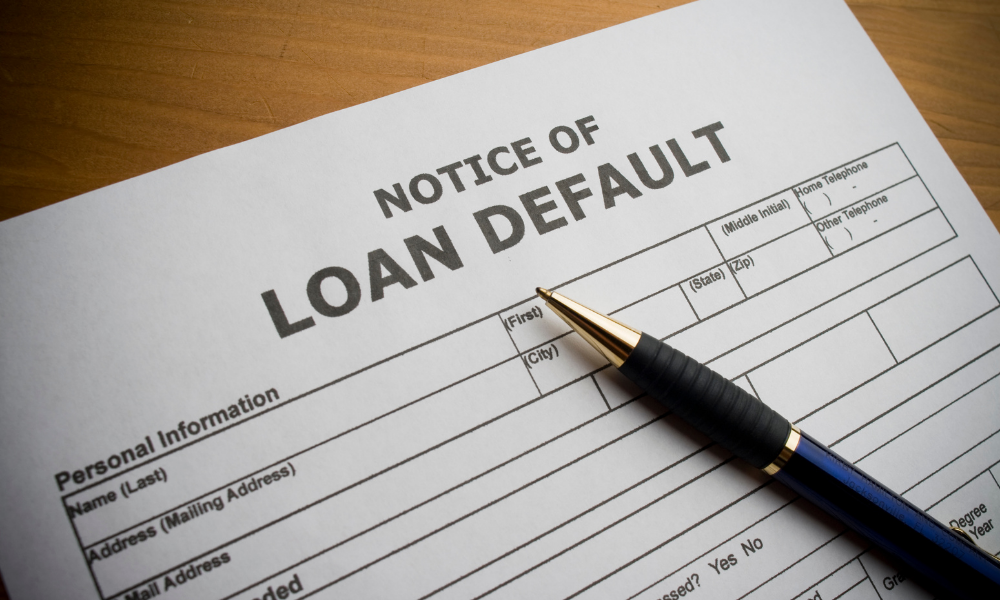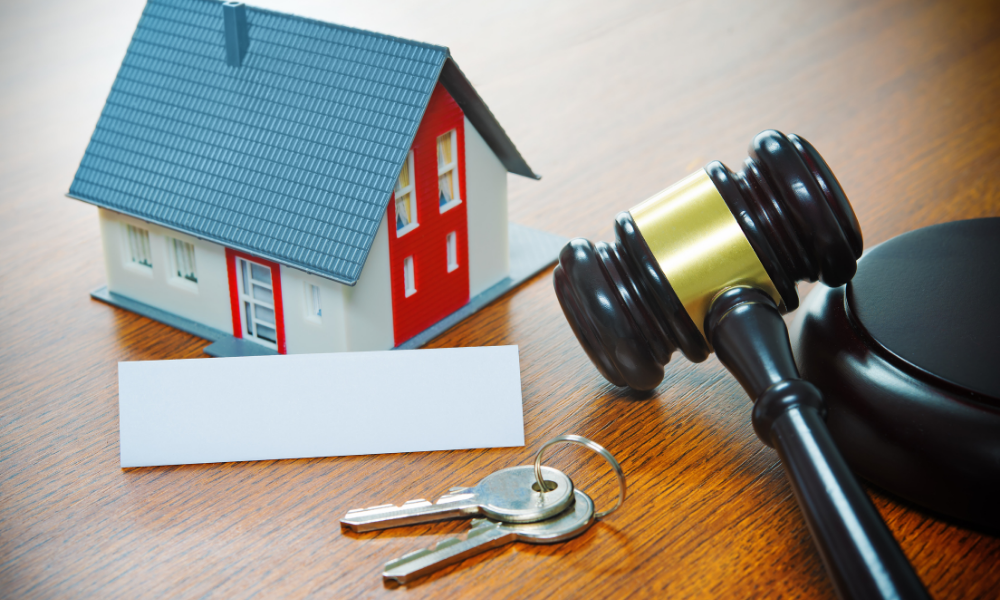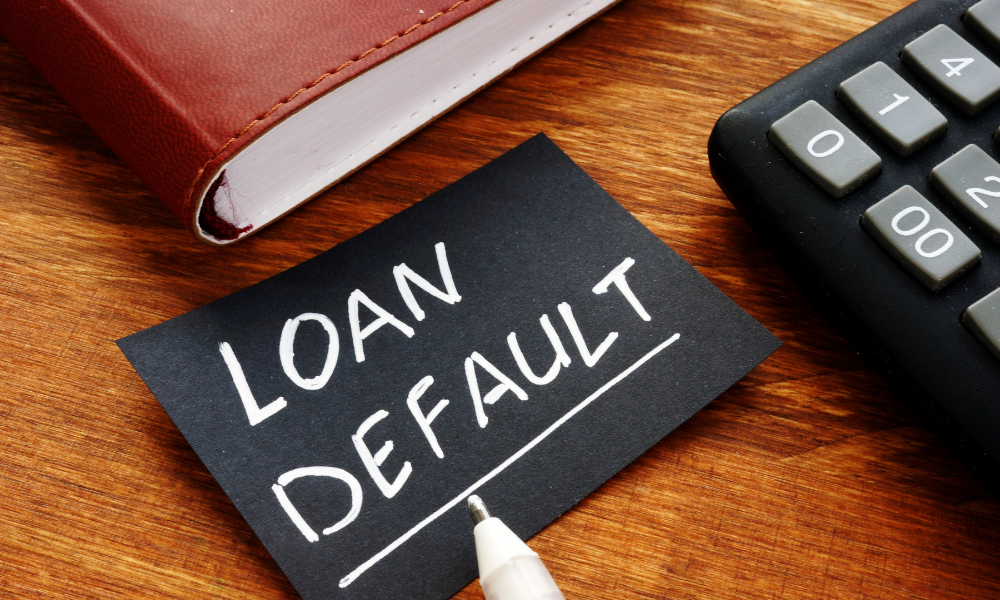Defaulting on a loan happens. Nobody takes out a loan without the intention of not paying it back and banks don’t lend their money to people they don’t think can repay it. But sometimes the unexpected happens and the borrower can’t afford the loan payment. Maybe an emergency medical expense came up that was more important than a loan payment or maybe they lost their job and can’t afford it.
No matter the reason for why you can’t or didn’t pay your loan, you need to know what happens when you default on your loan.
In this article, you will learn:
- What is Default?
- What Happens if a Borrower Defaults on Their Loan?
- What are the Consequences of Defaulting on a Loan?
- What Should You Do if You Are Going to Default on Your Loan?
Let’s begin.

What is Default?
Default is when the borrower fails to pay back the loan and doesn’t hold up their side of the loan agreement. As we mentioned, there are a variety of reasons the borrower may not be able to pay the loan but regardless of the reason the result is the same – the borrower can’t pay the loan and the lender has a legal right to take action.
Every loan and loan agreement is different. Depending on the type of loan you took out, default can occur right after the initial missed payment or even months later following a grace period where you have the ability to repay the missed payment. For a mortgage loan, you have 30 days after your last payment until you default. There is a 15 day grace period where you can make a late payment before defaulting.
Other loans have longer or shorter default times. Credit card loans have 180 days until you default and you are allowed to miss 1 payment before being penalized while student loans give you 270 days before defaulting with a 90 day grace period to make a payment.
What Happens if a Borrower Defaults on Their Loan?
If you have missed a payment on your loan the lender will first try to contact you to figure out the reason your payments are missing or are late. Sometimes there are mistakes whether its user error or an accounting error on the lender’s part where it’s a simple fix.
If they call and find that it wasn’t a mistake and you truly will default on your loan they will do their best to work with you to reach a reasonable solution. The lender may suggest a repayment plan to make your loan more affordable for the time being. Things like reducing interest, putting your loan in forbearance, or creating a customized payment plan may be brought to the table during these talks.
For the most part, the lender wants you to keep making loan payments. They make their money off the interest of each payment, that’s why they want to come to a reasonable solution. They lose money when they don’t get payments and have to chase borrowers down for missed payments which can be an expensive process.
Although lenders may be flexible, depending on your situation, there are consequences of defaulting on your loan.

Consequences of Defaulting on Your Loan
Defaulting on your loan and breaking a contract is never something you want to do. Financially it’s smarter to stay in good standing with banks rather than not. It’s much easier to work with banks if you haven’t had a slip up. For those who have defaulted on their loan, their are consequences.
Increase Costs
Most loans have late fees and penalties if payments are not paid on time. The longer they aren’t paid the greater the penalties and fees get. Lenders may give you more time to pay off the loan extending the term but they will also increase the interest rate, causing you to pay more money over the loan’s lifespan.
Take Legal Action
Lenders also have a right to take legal action. They may put your debt in collections where it affects your credit score and stains your financial portfolio. They even have the right to take your home or whatever collateral may have been secured to get the loan. This means that if you can no longer pay your mortgage payment, the bank can foreclose and take your home from you.
Drops your credit score
Defaulting on a loan negatively impacts your credit score. Your credit score is essentially your financial cover letter. If you want to get a loan a bank will first analyze your credit score and if it’s low, they will consider you high risk and you won’t qualify for a loan. Defaulting on a loan can ruin your credit score and make it much more difficult to get loan as a borrower in the future.
What to Do if You Are Going to Default on Your Loan
If you know you are going to default on your loan, be proactive about it. Contact your lender ahead of time and let me know about your situation and how you are struggling to make payments. Most lenders will work out a deal where you can keep the loan because it’s in the lenders best interest to do so.
Make sure to document every conversation you have with the lender. Keep track of what is said, the dates the conversations were had, and keep your own records of agreements to hold lenders accountable as well. You can use this information to help build your case if there are loan payment disputes in the future.
Going into default is an extremely stressful process. Money brings a lot of stress onto people’s lives especially when it’s hard to come by. Being responsible and proactive about your money woes can help your situation and possibly give you more time to get things right. If you are going to default on your loan, speak with an experienced loan professional to learn what your options are.
Don’t wait until it’s too late and bridges are burned. Our experts at Yieldi are more than happy to walk you through the process so we can come to a solution together. Schedule an appointment or contact us online today!
